There’s a straight line from eugenics to ‘biblical family values’ to white supremacy and the anti-abortion movement
This article originally appeared on July 5, 2022 at Baptist News Global.
Pro-life conservative evangelicals erupted into unanimous jubilation at the news of the U.S. Supreme Court overturning Roe v. Wade. But while united in their celebration, they are divided in their vision for the future of the pro-life movement and unaware of its past.
Karen Swallow Prior tweeted, “Our work now is just starting: We must help and support moms, dads and babies. Love them all — and in so doing making abortion unimaginable.”

Karen Swallow Prior
In an opinion piece for the New York Times, she argued, “We are our brother’s and our sister’s keepers, and it does take a village to become who we are.” In that spirit of community, she recommended a number of whole-life approaches, including a public policy agenda the Southern Baptist Convention recommended at its 2022 meetings that includes “alleviating hunger and strengthening low-income families.”
But a closer look at the SBC’s public policy agenda shows it also highlights adoption, discrimination against LGBTQ people, and support for faith-based schools.
Many people balked at her statement, including Kristin Du Mez, who asked Prior directly, “If this support wasn’t there to actually *prevent abortions* (small-scale pregnancy crisis centers and free diaper coupons if you attend Bible study not withstanding) why should we expect conservative Christians to step up now?”

Kristin Kobes Du Mez
And given the anti-social-justice rhetoric coming out of men like John MacArthur and Voddie Baucham as well as evangelicalism’s track record of dismissing social concerns as being “woke,” “CRT,” or “big government,” it’s understandable that many would be skeptical of Prior’s vision.
The Gospel Coalition published one piece saying that whole-life approaches are “little more than a lazy slander of the pro-life cause,” that they “distort pro-life priorities,” and are too exhausting even for Superman, among other things.
They published another piece claiming overturning Roe v. Wade “is a story about God. He has heard our prayers and used our efforts, and he has done a great work.” Italicizing the words “he” in an article celebrating the taking away of women’s rights seemed odd.
“The pro-life conservative evangelical visions for moving forward after Roe v. Wade would seem to be to an attempt to convince evangelicals to embrace social action to a degree they never have before.”
Then they published another article that claimed: “As the church applies a robust ethic of each person’s dignity, it requires us to care for individuals holistically. The church’s involvement in adoption and foster care are good examples. Contrary to the criticism that Christians only care about the issue of life up until the moment of birth, a recent study concluded believers are nearly three times more likely to adopt than the general public.”
So the pro-life conservative evangelical visions for moving forward after Roe v. Wade would seem to be to an attempt to convince evangelicals to embrace social action to a degree they never have before, to demonize supporting mothers and babies as “lazy slander,” to offer theological thoughts and praises about the topic, or to promote sexual discrimination, adoption and Christian education.
When personal desires are hijacked by socio-political power
When we found out in January 2009 that we were having a miscarriage after a number of years of hoping for a baby, Ruth Ellen and I began to consider pursuing adoption more seriously. Like many young conservative evangelical married couples, we longed to be parents as a way to love the vulnerable. And adoption seemed to be a great way to fulfill our desire to be parents while reflecting our theology that God had adopted us.
Little did we know, however, that as good as our intentions may have been, we also were being influenced by an evangelical adoption industry that had been shaped for decades by theologies of patriarchy and white supremacy.
“Although slavery and adoption may seem like totally different pictures of the gospel, both converged through patriarchy and white supremacy in the worlds of evangelical education and adoption.”
Two of our favorite theologians at the time were John MacArthur and John Piper. While MacArthur believes slavery is the heart of the gospel, Piper believes adoption is the heart of the gospel. And although slavery and adoption may seem like totally different pictures of the gospel, both converged through patriarchy and white supremacy in the worlds of evangelical education and adoption.
But to understand how education and adoption may play a role in conservative evangelicalism’s strategy for the future, we need to reflect on how they were formed in the past.
The fear of ‘race suicide’
At the dawn of the 20th century, leaders in the United States noticed the falling birth rate of Western nations and began to discuss the problem of “race suicide.” President Roosevelt warned of this looming danger, writing in a letter to pastor Franklin C. Smith in 1911: “To advocate artificially keeping families small, with its inevitable attendants of pre-natal infanticide, of abortion, with its pandering to self-indulgence, its shirking of duties, and its enervation of character, is quite as immoral as to advocate theft or prostitution, and is even more hurtful in its folly, from the standpoint of the ultimate welfare of the race and the nation. … You say that your ministry lies among well-to-do people; that is, among people of means and upper-class workers. I assume that you regard these people as desirable elements in the state. Can you not see that if they have an insufficient quantity of children, then the increase must come from the less desirable classes?”
“Can you not see that if they have an insufficient quantity of children, then the increase must come from the less desirable classes?”
Roosevelt also was concerned about how progressive religious journalism was covering his fear of fewer white children being born, complaining: “To me the most horrifying part of this movement is to find nominally religious journals like the Independent containing articles by women and clergymen, apologizing for and defending a theory of conduct which, if adopted, would mean the speedy collapse of this republic and of western civilization. The action of the Independent in this matter was a scandalous offense against good morals and a cause of shame to men of real religious feeling.”
The themes of patriarchy and white supremacy paired with the fear of feminism and non-white people were laying the groundwork for what would be considered the American biblical family.
How eugenics shaped the American family
In an article subtitled “Eugenic Mythologies and Internet Evangelism” published in The Journal of Legal Medicine, Paul A. Lombardo explains how eugenics began in 1873 as a way of saying that “physical, mental and moral deficiencies were based in heredity and were passed down predictably within families from generation to generation.”
Just as John MacArthur argued that the inhabitants of Africa were destined by God to be perpetually a servile people to European and Jewish families due to the curse of Canaan in Genesis 9, the promoters of eugenics argued that the intergenerational poverty of Black families was proof that Black families were under the curse of Exodus 20:5, where God promised to visit “the iniquity of the fathers upon the children unto the third and fourth generation of them that hate me.” A fear spread of “problem families, seemingly infected with bad heredity that explained their social failure over many generations” that was evidenced in “moral evil and social dependency” and was used to promote eugenic political policies, Lombardo explained.
 Elisha Harris was a secretary of the Prison Association in 1871 and used the Exodus 20 curse as reasoning to “trace the descent of a criminal family … ‘to the third or fourth generation.’” The New York Times said of Harris, “We can all feebly appreciate the importance to the public of the care and education of a single pauper child.” Regarding one particular child, the New York Times editors said, “The child could … have been placed in some honest farmer’s family, provided with schooling,” with the potential of becoming “a mother of honest men and virtuous women.”
Elisha Harris was a secretary of the Prison Association in 1871 and used the Exodus 20 curse as reasoning to “trace the descent of a criminal family … ‘to the third or fourth generation.’” The New York Times said of Harris, “We can all feebly appreciate the importance to the public of the care and education of a single pauper child.” Regarding one particular child, the New York Times editors said, “The child could … have been placed in some honest farmer’s family, provided with schooling,” with the potential of becoming “a mother of honest men and virtuous women.”
The famous evangelist Billy Sunday bought into eugenics, often preaching against “one God-forsaken, vicious, corrupt man and woman to breed and propagate and damn the world by their offspring,” and arguing that “children have a right to be born cleanly into the world and not be ‘damned into the world before birth by a predetermined heritage of blight.’”
“Children have a right to be born cleanly into the world and not be ‘damned into the world before birth by a predetermined heritage of blight.’”
In his article, Lombardo shows how supporters of eugenics believed “a society of ‘sound individuals’ would stabilize the state; ‘a clean physical race’ could be the first step to reform.”

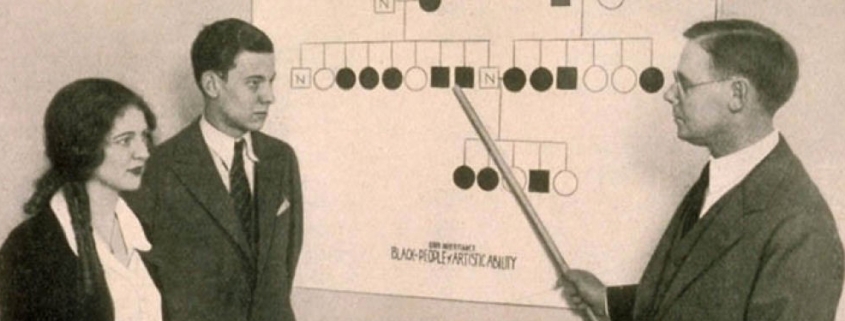

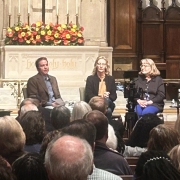
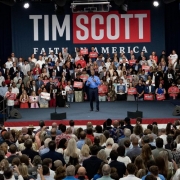
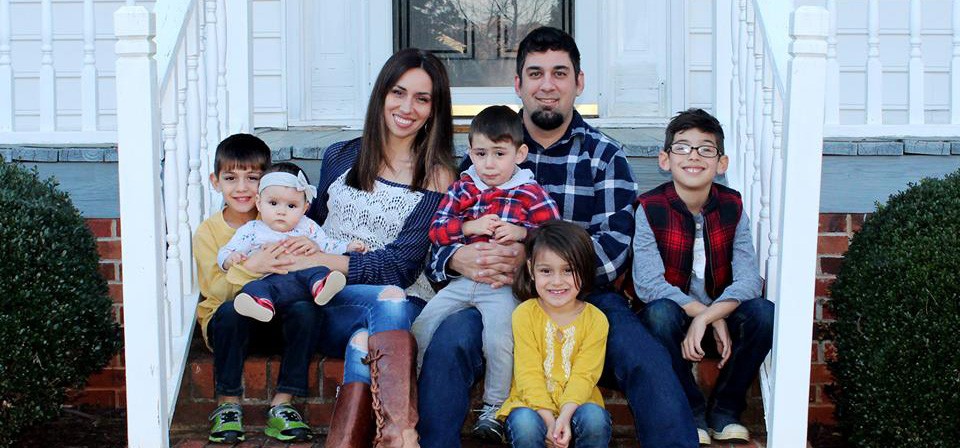
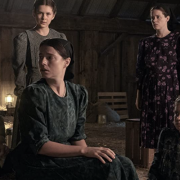

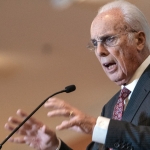

Leave a Reply
Want to join the discussion?Feel free to contribute!